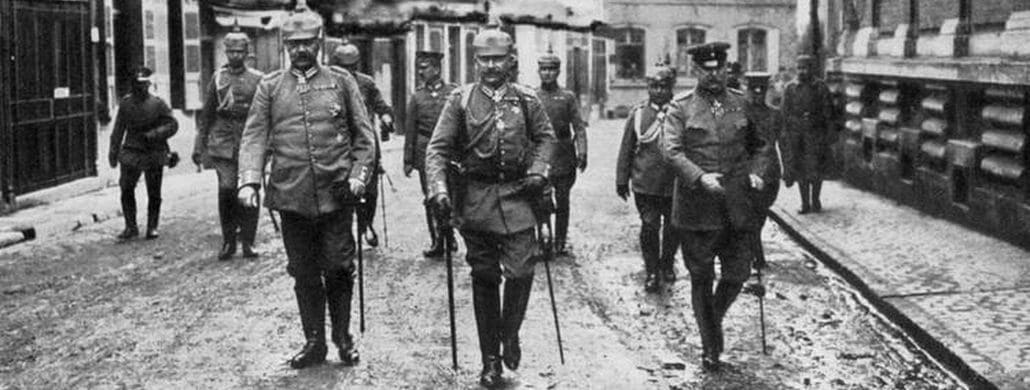
[Germany, summer 1917] The war was already entering its third year, and there was no prospect of peace. Several times Pope Benedict XV had urged the belligerent nations to negotiate peace, but in vain.
On behalf of the Central Powers, Chancellor Theobald of Bethmann-Hollweg had offered the Entente peace negotiations. But his note was vague, emphasizing Germany’s strength rather than its willingness to evacuate occupied territories, and the Entente had outright rejected. Now the military commanders felt even more entitled to continue the war with all their strength. Yet hunger, great need and casualty lists that seemed to have no end made more and more people long for peace.
The political truce breaks apart
Matthias slowly recovered from his war injury. Although he had a gammy leg, he walked around rather quick. But his soul did not recover. Lottie sensed that the terrible experiences had changed her husband. He often had nightmares, but did not talk about them. “Lots of people cannot go on,” Lottie began. “They only yearn for peace. They have long since stopped believing that we will win the war after all. Now that America is also against us.” It felt like someone had stabbed both their hearts. “I know, I know,” Matthias said, “also in politics things have changed.” The Social Democratic Party had broken up over the war loans, the opponents had founded the Independent Social Democratic Party of Germany on April 7, 1917.
The Peace Resolution
On July 6, 1917, Matthias Erzberger of the Center Party gave a sensational speech in the Reichstag. He proved that the military gave false information on the effectiveness of submarine warfare and demanded consequences. Germany should strive for a negotiated peace with its enemies. On July 19, Erzberger introduced a peace resolution in the Reichstag. With a majority of votes, it passed. “Let us hope for the peace resolution, let us hope for a negotiated peace,” Lottie said. “Not with this High Command,” Matthias answered gloomily, “they want victory, whatever it may cost. Hindenburg and Ludendorff have conquered vast areas in the East and rule them with an iron fist, they will never abandon their annexations. Erzberger’s speech in the Reichstag outraged them.”
The High Command determines everything
Then it burst out of him. “Don’t believe the propaganda,” he said. “There is nothing left of the villages on the Somme. We suffered devastating losses. After that, the OHL decided on a strategic retreat; the front was to be shortened, thus saving and freeing up men and material. During the retreat to the “Siegfried Line” from Arras to St. Quentin to Soissons, the area was systematically devastated and partially mined. They blew up entire villages and deported close to 150,000 people. They have blown up everything, cut down every tree, mined roads, contaminated wells, dammed up every river course, unrolled rails and telephone wires, where there were once villages there is only death and destruction. The French and Belgians will hate us forever.”
Matthias was to be proved right. The OHL saw the peace resolution as an admission of weakness and forced the resignation of Reich Chancellor von Bethmann-Hollweg. Although a new Reich Chancellor was appointed, de facto the OHL determined German policy from then on, or more precisely General Ludendorff. Kaiser Wilhelm II had long since been marginalized and was no longer able to cope with the situation.
Through the peace resolution, Erzberger made numerous enemies within the old elites, who were fighting for their position; he became the object of a targeted agitation.
America becomes an enemy
From June 1917 onwards, the USA sent troops to Europe. Still, the US remained in contact with Austria-Hungary until the 12th battle of the Isonzo in October 1917. After a massive poison gas attack by the Germans and Austrians, artillery blasted everything into oblivion. Germans and Austro-Hungarians invaded Italy. Former President Theodore Roosevelt launched a campaign for the declaration of war on Austria-Hungary. In December 1917, the USA declared war on Austria-Hungary, the ally and “vassal of the German government who supported its unlawful and reckless submarine war”.

Be the first to comment